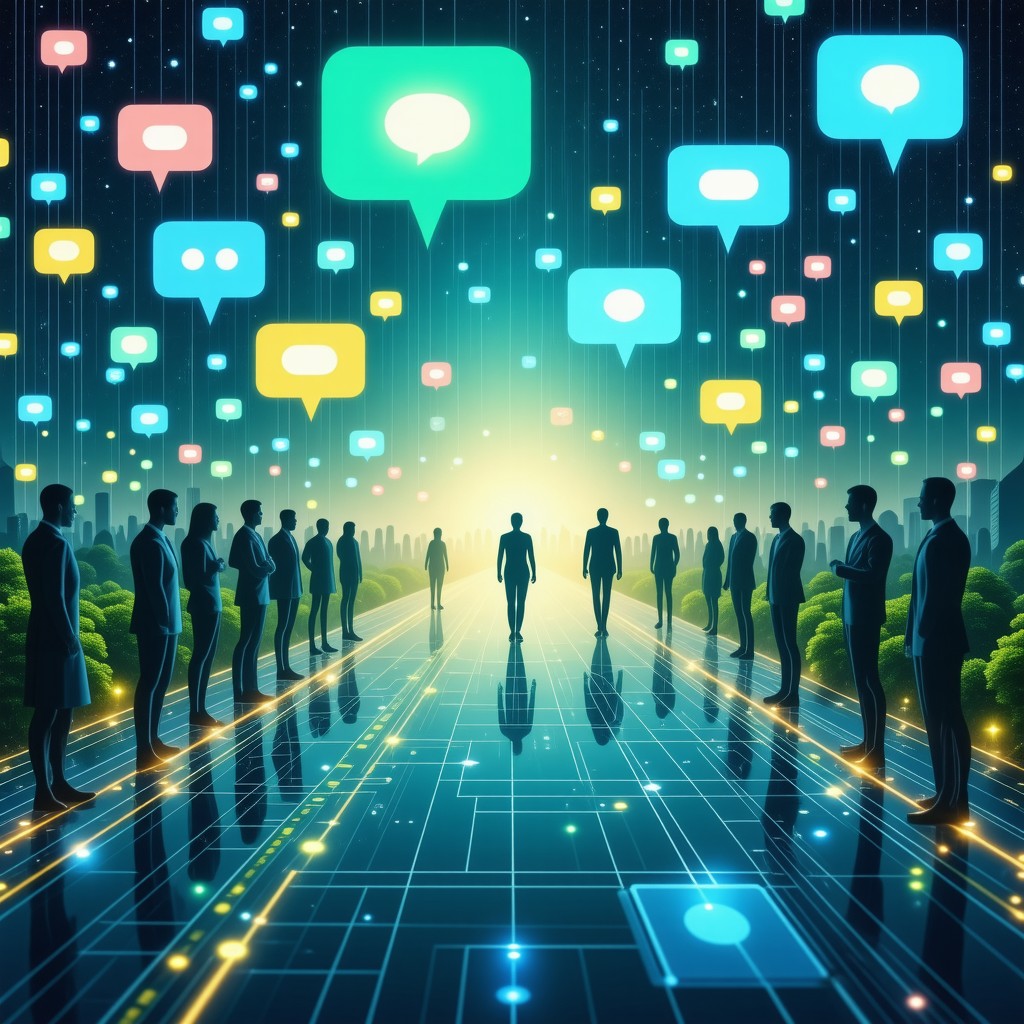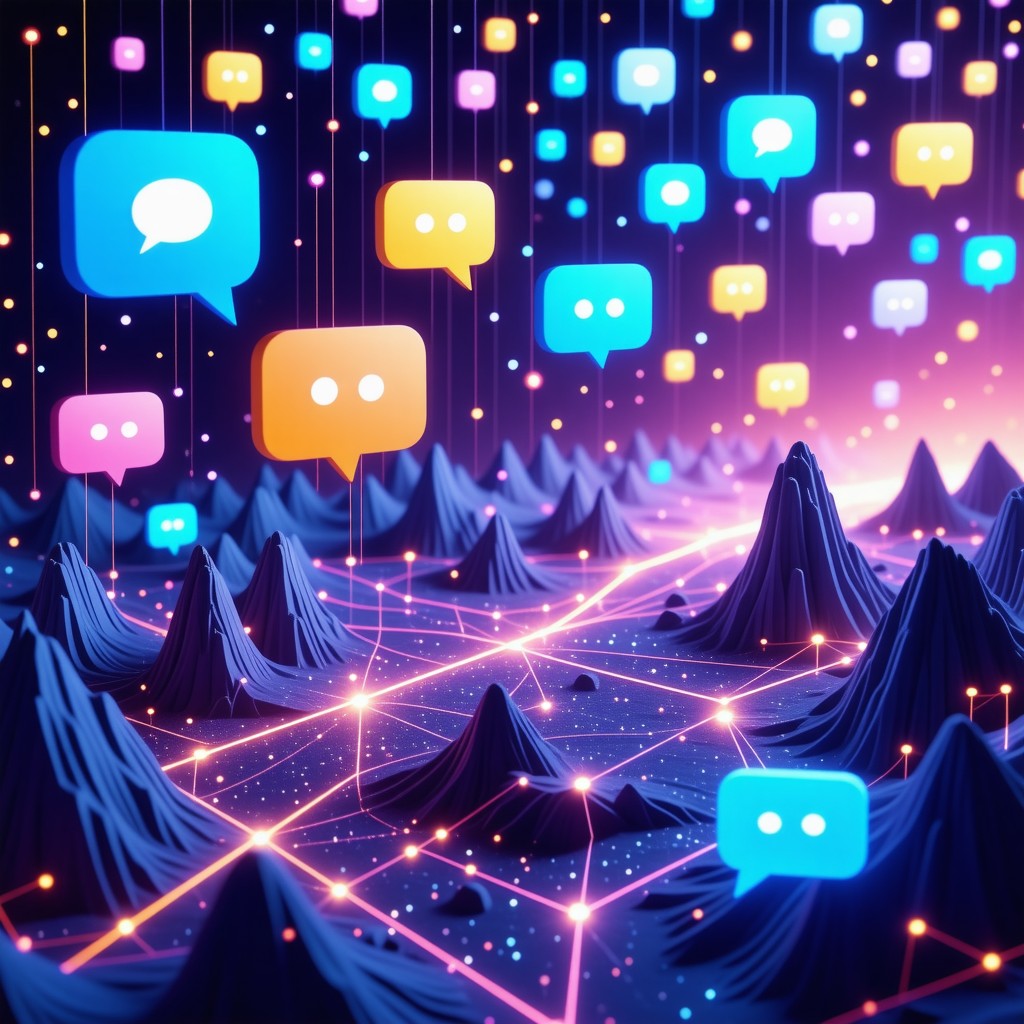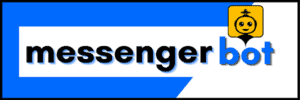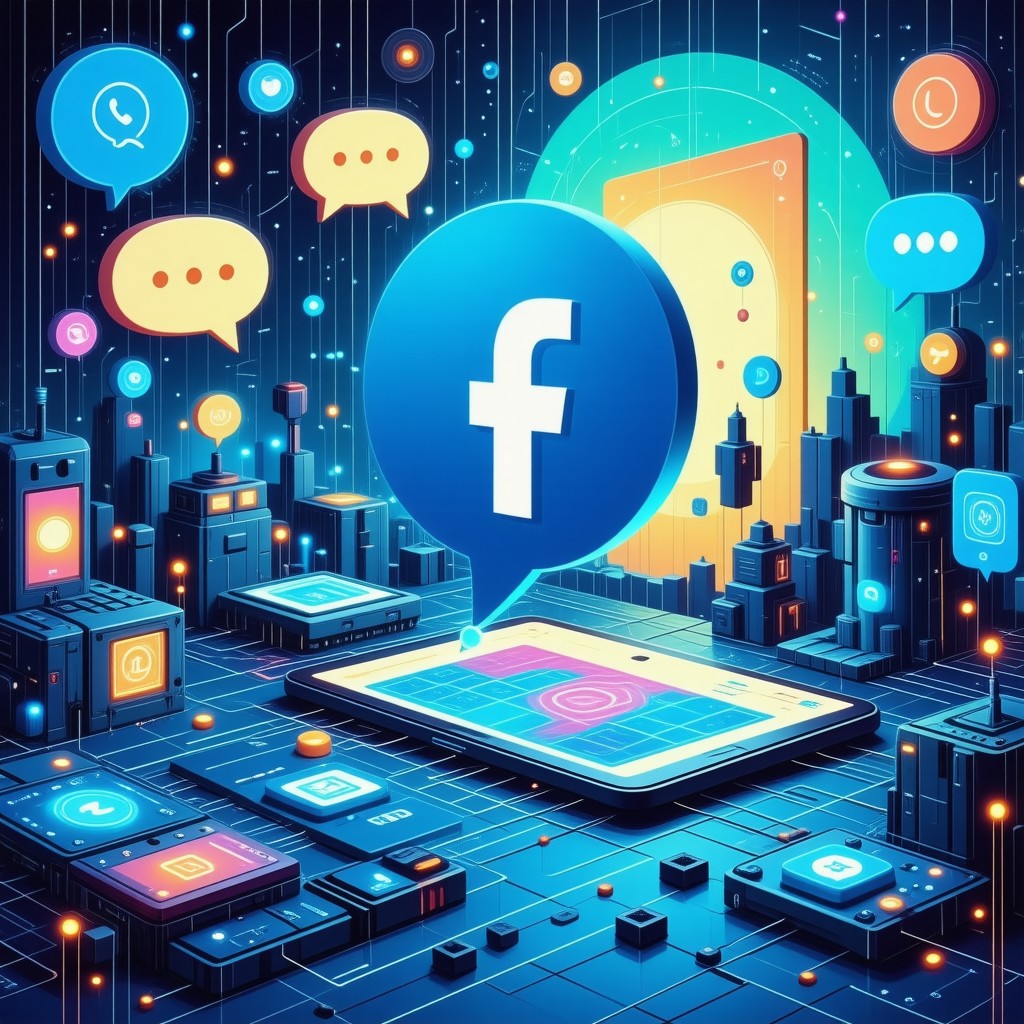Key Takeaways
- Facebook chat bots are automated tools enhancing user interaction and streamlining conversations on the Messenger platform.
- Popular options like ManyChat and Chatfuel provide user-friendly interfaces for businesses to create effective chatbots without coding.
- Chat bots can improve customer service by providing instant responses and handling frequently asked questions, increasing user satisfaction.
- Identifying chat bots on Facebook Messenger involves recognizing indicators like rapid responses and repetitive answers.
- Messenger bots are legitimate, adhering to Facebook’s guidelines and offering functionalities that enhance user experience and engagement.
- Future developments in Facebook chat bots include enhanced personalization and integration capabilities, paving the way for innovative user interactions.
In the ever-evolving landscape of digital communication, Facebook chat bots have emerged as a powerful tool for enhancing user interaction and streamlining conversations. But what exactly are these chat bots for Facebook, and how do they impact your Messenger experience? In this article, we will delve into the fundamentals of Facebook Messenger chat bots, exploring their types, functionalities, and the distinctions between bots and real people. We will also address common questions such as, “Is there a chat bot for Facebook?” and “How can you tell if someone is a bot on Facebook Messenger?” By the end, you will have a comprehensive understanding of the legitimacy of these bots, their role in communication, and the technology behind Facebook AI chat bots. Join us as we navigate the fascinating world of Facebook chat bots and uncover the opportunities they present for both users and businesses alike.
Is there a chat bot for Facebook?
Yes, there are several chatbots available for Facebook that can enhance customer interaction and streamline communication. Here are some of the best options for 2025, both free and paid:
- ManyChat: This popular chatbot platform allows businesses to create automated conversations on Facebook Messenger. ManyChat offers a user-friendly interface and supports various integrations, making it ideal for marketing campaigns and customer support.
- Chatfuel: Designed for non-technical users, Chatfuel enables businesses to build chatbots without coding. It provides features like AI-driven responses and analytics to track engagement, making it a powerful tool for enhancing customer service.
- MobileMonkey: This versatile chatbot platform supports Facebook Messenger and offers tools for lead generation, customer support, and marketing automation. MobileMonkey’s OmniChat feature allows businesses to engage with customers across multiple channels seamlessly.
- Tars: Tars focuses on creating conversational landing pages that can be integrated with Facebook Messenger. This approach helps businesses capture leads and provide instant responses to customer inquiries.
- Zendesk Chat: While primarily a customer support tool, Zendesk Chat integrates with Facebook Messenger to provide real-time assistance. It allows businesses to manage customer interactions across different platforms from a single dashboard.
Implementing a Facebook chatbot can significantly improve response times to customer inquiries, handle frequently asked questions, and guide users through product recommendations or troubleshooting. According to a study by HubSpot, 47% of consumers are open to buying items through a chatbot, highlighting the growing importance of this technology in e-commerce and customer service.
Understanding the Basics of Facebook Chat Bots
Facebook chat bots are automated programs designed to simulate conversation with users on the Facebook Messenger platform. They utilize artificial intelligence to understand user queries and provide relevant responses, enhancing user experience and engagement. These chat bots for Facebook can be programmed to perform various tasks, from answering frequently asked questions to facilitating transactions, making them invaluable tools for businesses looking to improve customer service.
With the rise of Facebook Messenger for Business, companies can leverage chat bots to streamline communication and automate routine tasks. This not only saves time but also allows businesses to focus on more complex customer interactions that require human intervention.
Types of Facebook Chat Bots: Free vs. Paid Options
When considering Facebook chat bots, businesses can choose between free and paid options, each offering unique features and capabilities. Free chat bots often come with basic functionalities, making them suitable for small businesses or those just starting with automation. However, they may have limitations in terms of customization and advanced features.
On the other hand, paid chat bots typically offer more robust functionalities, including advanced analytics, multi-channel support, and enhanced customization options. For instance, platforms like Messenger Bot provide a free trial that allows businesses to explore premium features before committing to a subscription. This flexibility enables businesses to find the right balance between cost and functionality, ensuring they select a chat bot that meets their specific needs.

How to Tell if Someone is a Bot on Facebook Messenger?
Identifying whether you’re interacting with a bot on Facebook Messenger can enhance your communication experience. Here are some key indicators to help you determine if someone is a bot:
- Response Time: Bots typically respond almost instantly, while human responses may take longer. If replies are immediate and consistent, it could indicate a bot.
- Repetitive Responses: Bots often provide the same answer to different questions. If the conversation feels scripted or the responses are overly generic, this may suggest a bot.
- Lack of Personalization: Bots usually lack the ability to engage in personalized conversation. If the responses do not reference previous messages or seem disconnected from the context, it might be a bot.
- Limited Understanding: If the entity struggles to comprehend complex questions or provides irrelevant answers, it is likely a bot. Bots are programmed for specific queries and may falter with nuanced topics.
- Profile Characteristics: Check the profile of the user. Bots often have incomplete profiles, generic usernames, or no profile picture. A lack of personal information can be a red flag.
- Links and Promotions: If the conversation frequently includes links or promotional content without context, it may indicate a bot designed for marketing purposes.
- Testing Engagement: You can ask open-ended questions or use humor. Bots often fail to respond appropriately to such prompts, revealing their non-human nature.
For further insights, refer to studies on chatbot behavior and user interaction, such as those published by the Journal of Human-Computer Interaction, which explore how users can differentiate between human and automated responses. Understanding these characteristics can enhance your ability to identify bots effectively on platforms like Facebook Messenger.
Common Signs of Bots in Facebook Messenger Conversations
Recognizing the signs of bots in Facebook Messenger conversations can save you time and frustration. Here are some common signs to look out for:
- Scripted Interactions: If the conversation feels mechanical or lacks depth, it may be a bot. Bots often follow a script and may not adapt well to unexpected questions.
- Generic Greetings: Bots typically use standard greetings and responses. If the conversation starts with a generic “Hello!” or “How can I help you?” without any personalization, it could be a bot.
- Inability to Handle Complex Queries: If you ask a detailed question and receive a vague or irrelevant answer, it’s likely a bot. Bots are designed for specific tasks and may struggle with complex inquiries.
- Frequent Links: If the conversation includes multiple links or promotional messages, it may indicate a bot’s marketing intent. Bots often push content rather than engage in meaningful dialogue.
By being aware of these signs, you can better navigate your interactions on Facebook Messenger and distinguish between human and bot conversations. For more detailed guidance on identifying and using Facebook Messenger chat bots, check out our comprehensive resources.
Do Bots Message You on Facebook?
Yes, bots can message you on Facebook. These bots are automated profiles designed to simulate human interaction on the platform. They can serve various purposes, including customer support, marketing, and engagement, but they can also be used for malicious activities such as scams and spreading misinformation.
The Role of Facebook Messenger Bots in Communication
Facebook Messenger bots play a significant role in enhancing communication between businesses and users. These Facebook chat bots are designed to provide instant responses, streamline customer service, and facilitate marketing efforts. By automating interactions, businesses can ensure that users receive timely information, which can lead to improved customer satisfaction and engagement.
Moreover, Facebook Messenger chat bots can handle multiple inquiries simultaneously, making them an efficient tool for businesses looking to scale their communication efforts. They can be programmed to answer frequently asked questions, provide product recommendations, and even assist with transactions, all while maintaining a conversational tone that mimics human interaction.
How Bots Initiate Conversations on Facebook
Bots typically initiate conversations on Facebook through various methods, including:
- Promotional Messages: Businesses often use bots to send promotional messages to users who have opted in to receive updates. These messages can include special offers, product launches, or event notifications.
- Comment Triggers: Bots can be programmed to respond to comments on posts, engaging users directly and encouraging further interaction. This method helps businesses maintain an active presence on their Facebook pages.
- Direct Messaging: Bots can reach out to users who have interacted with a business in the past, reminding them of abandoned carts or following up on previous inquiries.
By understanding how these Facebook messenger chat bots operate, users can better navigate their interactions and recognize when they are engaging with automated systems.
Is the Messenger Chat Bot Legit?
Yes, the Messenger chat bot is legitimate. Facebook Messenger bots are designed to enhance user interaction and provide automated responses, making them a valuable tool for businesses and developers. Here are key points to consider regarding their legitimacy:
- Compliance and Approval: Messenger bots are subject to strict guidelines set by Facebook. They must comply with the platform’s policies, ensuring that they are safe and reliable for users. Facebook regularly reviews these bots to maintain quality and security standards.
- Functionality: These bots can perform a variety of tasks, such as answering frequently asked questions, providing customer support, and facilitating transactions. Their functionality is backed by advanced artificial intelligence, allowing for natural language processing and improved user engagement.
- User Experience: Many businesses have successfully integrated Messenger bots to enhance customer service. According to a study by HubSpot, 47% of consumers are open to purchasing items through a chatbot, indicating their effectiveness in driving sales and improving user experience.
- Security Measures: Facebook implements robust security measures to protect user data and privacy. Bots must adhere to data protection regulations, ensuring that user information is handled responsibly.
- Real-World Applications: Numerous reputable companies utilize Messenger bots for various purposes, from e-commerce to customer service. For example, brands like Sephora and H&M have successfully deployed Messenger bots to assist customers, showcasing their legitimacy and effectiveness in real-world scenarios.
User Experiences with Facebook Messenger Chat Bots
User experiences with Facebook Messenger chat bots can vary, but many users report positive interactions. Here are some insights into how users perceive these bots:
- Convenience: Users appreciate the convenience of getting quick answers to their questions without waiting for a human representative. This immediacy enhances the overall customer experience.
- 24/7 Availability: Unlike human agents, chat bots for Facebook are available around the clock, allowing users to receive assistance at any time, which is particularly beneficial for businesses with a global audience.
- Personalization: Advanced Facebook AI chat bots can tailor responses based on user preferences and past interactions, creating a more personalized experience that resonates with users.
- Feedback Mechanism: Many businesses encourage users to provide feedback on their interactions with chat bots, allowing for continuous improvement and adaptation to user needs.
- Integration with Services: Users often find it helpful when chat bots integrate with other services, such as booking appointments or making purchases directly through the chat interface, streamlining their experience.

Is a Chat Bot a Real Person?
Understanding the distinction between chat bots and real people is crucial for navigating digital interactions effectively. A chatbot is a sophisticated computer program designed to simulate human conversation through text or voice interactions with users. While not all chatbots utilize artificial intelligence (AI), many modern chatbots leverage advanced conversational AI techniques, including natural language processing (NLP) and machine learning, to enhance their ability to understand and respond to user inquiries effectively.
Understanding the Difference Between Bots and Real People
Chat bots for Facebook, such as Facebook Messenger chat bots, are programmed to interact with users in a way that mimics human conversation. However, they lack the emotional intelligence and genuine understanding that real people possess. Here are some key differences:
- Response Generation: Chat bots generate responses based on algorithms and pre-defined scripts, while real people respond based on personal experiences and emotions.
- Complexity Handling: While chat bots can manage straightforward inquiries efficiently, they often struggle with complex or nuanced questions that require empathy or deep understanding.
- Availability: Chat bots are available 24/7, providing instant responses, whereas real people have limitations in availability and response time.
For businesses looking to enhance customer engagement, understanding these differences is vital. Utilizing Facebook AI chat bots can streamline communication, but it’s essential to set user expectations regarding the nature of these interactions.
The Technology Behind Facebook AI Chat Bots
Facebook AI chat bots operate using advanced technologies that allow them to learn from interactions and improve over time. Key components include:
- Natural Language Processing (NLP): This technology enables chat bots to understand and interpret user inputs more effectively, allowing for more natural conversations.
- Machine Learning: AI chat bots can learn from past interactions, adapting their responses based on user behavior and preferences.
- Integration Capabilities: Many Facebook chat bots can be integrated with various platforms, enhancing their functionality and reach across different channels.
As businesses increasingly adopt Facebook chat bots, understanding the underlying technology can help in optimizing their use for better customer engagement and satisfaction.
How does a bot work on Facebook?
Facebook bots, also known as chatbots, are automated applications designed to interact with users on the Facebook Messenger platform. These bots utilize artificial intelligence (AI) and natural language processing (NLP) to understand and respond to user inquiries, providing a seamless communication experience. By leveraging these technologies, Facebook chat bots can enhance user engagement and streamline communication for businesses.
The Mechanics of Facebook Chat Bots
Facebook chat bots operate through a series of well-defined processes that allow them to interact effectively with users. Here’s how they work:
- Functionality: Facebook bots can perform a variety of tasks, including answering frequently asked questions, providing customer support, and facilitating transactions. They can be programmed to handle specific queries, guide users through processes, or even engage in casual conversation.
- Development: To create a Facebook bot, developers use the Messenger Platform, which provides tools and APIs for building and integrating bots into Messenger. This includes setting up webhooks to receive messages and sending responses back to users.
- User Interaction: Once deployed, Facebook bots can engage users 24/7, offering instant responses that enhance user experience. They can be designed to recognize keywords and phrases, allowing them to provide relevant information based on user input.
- Benefits: Implementing a Facebook bot can significantly improve customer engagement, reduce response times, and streamline operations. According to a study by Chatbots Magazine, businesses that utilize chatbots can save up to 30% in customer service costs.
- Examples: Many companies, such as Sephora and H&M, have successfully integrated Facebook bots to assist customers with product recommendations and order tracking, showcasing the versatility and effectiveness of this technology.
For further reading on the capabilities and development of Facebook bots, refer to the official Facebook for Developers documentation and resources from industry experts like HubSpot and Gartner.
How Facebook Messenger Bots Interact with Users
Facebook messenger chat bots interact with users through a combination of predefined responses and AI-driven learning. Here’s how this interaction unfolds:
- Automated Responses: Bots are programmed to provide immediate answers to common inquiries, ensuring users receive timely assistance.
- Personalized Engagement: By analyzing user interactions, Facebook AI chat bots can tailor responses based on individual preferences and past conversations, enhancing the user experience.
- Multilingual Support: Many Facebook chat bots are equipped with multilingual capabilities, allowing them to communicate effectively with a diverse audience.
- Feedback Loop: Bots can learn from user interactions, improving their responses over time and adapting to changing user needs.
By understanding these mechanics, businesses can leverage Facebook chat bots to optimize their customer service and engagement strategies. For more insights on setting up and utilizing Facebook chat bots, explore our Comprehensive Guide to Facebook Messenger Chatbots.
Exploring Facebook Chat with AI Characters
As technology advances, the integration of AI characters into Facebook Messenger is becoming increasingly prevalent. These Facebook AI chat bots are designed to enhance user interaction, providing a more engaging and personalized experience. This section delves into the future of Facebook Messenger AI chat and the monetization opportunities available through these innovative tools.
The Future of Facebook Messenger AI Chat
The future of Facebook Messenger chat bots lies in their ability to create immersive and interactive experiences for users. With advancements in natural language processing and machine learning, these bots can understand and respond to user inquiries with greater accuracy and relevance. This evolution not only improves user satisfaction but also opens up new avenues for businesses to connect with their audiences.
- Enhanced Personalization: AI chat bots can analyze user data to tailor conversations, making interactions feel more human-like.
- Increased Automation: Businesses can automate customer service and engagement processes, freeing up human resources for more complex tasks.
- Integration with Other Platforms: Future developments may see AI chat bots seamlessly integrating with various digital platforms, enhancing their functionality and reach.
As we look ahead, the potential for Facebook chat bots to transform communication on social media is immense. Companies that leverage these technologies will likely gain a competitive edge in customer engagement and satisfaction.
Monetizing Your Experience with Messenger Bot Earn Money Opportunities
Monetization strategies for Facebook chat bots are evolving, allowing businesses to capitalize on their AI-driven interactions. Here are some effective ways to earn money through Messenger bots:
- Lead Generation: Utilize chat bots to capture leads through engaging conversations, directing users to sign up for newsletters or promotional offers.
- E-Commerce Integration: Implement shopping features within the chat bot, enabling users to browse products and make purchases directly through Messenger.
- Subscription Models: Offer premium content or services through subscription-based models, providing exclusive access to users who engage with the bot.
By exploring these monetization opportunities, businesses can effectively leverage Facebook messenger chat bots to generate revenue while enhancing user engagement. For more insights on setting up your own AI chat bot, check out our guide.




